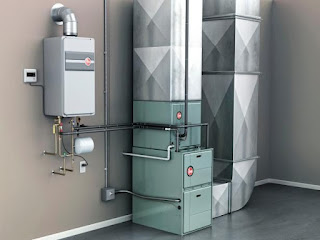9 Questions You Need to Ask Your HVAC Technician
All of us don’t want to lose our air conditioners during the height of summer. Neither do we wish to see smoke coming out of them, especially when it happens at times when help is seemingly unavailable. To help you prevent these problems, it is helpful if you ask questions from your HVAC technicians when you make an appointment. Aside from fixing your air conditioners and looking after your HVAC system, they can also provide insights to help you become more informed on how each component of your HVAC system functions. By being more knowledgeable about your HVAC (click here) system, you can do your part to help prevent the inconvenience of breakdowns and the high repair costs that come with them.
Should I consider getting a smart thermostat?
Smart thermostats are a trending device among newer systems. These enable the HVAC system to work efficiently, providing the best possible comfort and air quality for the occupants of the space they serve. Your HVAC technician can give helpful pointers on installation costs and if your current system is compatible with smart thermostats available on the market.
What is the best thermostat setting for each season?
The thermostat setting has always been a point of dispute among family members. However, a healthy compromise should be reached based on technical considerations that your HVAC technician can provide. Moreover, they can provide helpful advice on the best thermostat setting for each season that can satisfy both comfort and cost requirements.
Can you improve the air quality of my home?
One of the essential functions of HVAC systems is maintaining air quality. More than just air conditioning repair and maintenance, HVAC companies offer services such as installing air dehumidifiers and purifiers and air duct cleaning services. Your HVAC technician can glean the current condition of your HVAC system and can provide recommendations on how to improve the air quality of your home further.
Can you clean my air ducts?
To ensure the efficiency of your HVAC system, your air ducts should be cleaned regularly. Once your HVAC technician inspects your system, they can recommend the best schedule for cleaning your air ducts to ensure that your air quality is maintained.
Does your company offer regular maintenance services?
Your HVAC system requires regular maintenance to prevent breakdowns and ensure ideal working conditions. Typical HVAC maintenance schedules are twice a year. Older HVAC systems may require more frequent maintenance checks. HVAC systems are complex and need regular attention from qualified personnel to ensure that you don’t suffer the inconvenience of experiencing breakdowns.
When will my next appointment be?
Your HVAC technician typically discusses the items that went into repairing your air conditioners. They may also thoroughly assess your air conditioner and provide an estimated time when these might need another checkup or repairs. Make sure to ask this question before they leave after finishing their job.
Will my current air conditioner last longer?
Older systems may last for decades. However, when they show signs of wear and require more frequent repairs, it might be time to have them replaced. Your HVAC technician is the best-placed person to determine this since they just looked deeply into your AC unit. The earlier you determine when to replace your air conditioner, the longer you can prepare the budget for replacing them.
If I replace my air conditioner, which is the best new air conditioner to replace it?
Selecting the ideal air conditioner unit based on area and other considerations is essential for more efficient and cost-effective use and for helping your HVAC system last longer. Your HVAC technicians know the critical figures to determine which air conditioners fit your home best.
What are SEER ratings?
SEER rating requirements were outlined in 1992 for centrally-cooled systems. At that time, the SEER rating was 10. However, updates made in 2015 set up different requirements for each region to determine the best SEER ratings that can help you save on energy costs. For northern states, the SEER requirement is 13. In the Southwest, the SEER requirement is 14. To know more about SEER ratings and how these are calculated, you can ask your HVAC technician for details. Knowing your SEER ratings is very helpful when selecting the appropriate air conditioner for the space you require to cool.
Takeaways: It Always Pays To Ask
Since your HVAC technicians have seen your air conditioners, asking these questions can provide helpful information on how you can help maintain your HVAC system by making timely actions. Awareness of how each component in your HVAC system helps save costs and ensure the best air quality and comfort for your family for more years using the same HVAC system.



Comments
Post a Comment